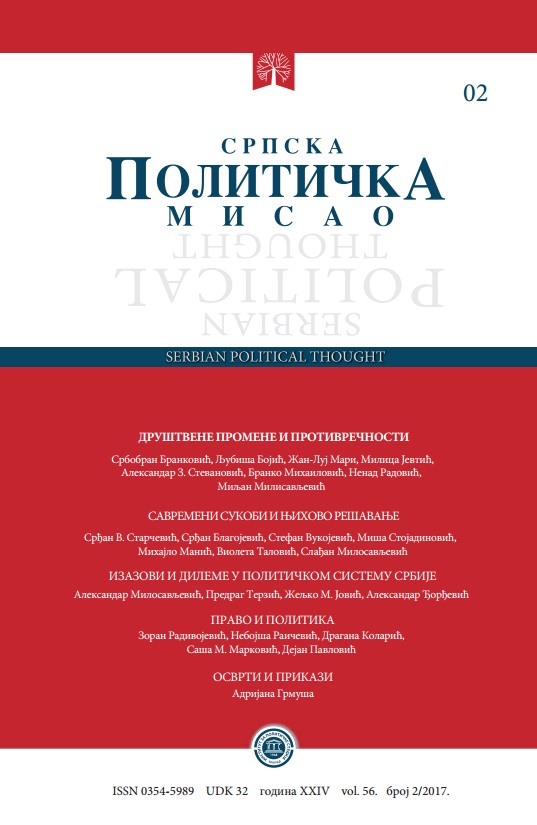Начин избора председника Републике Србије − актуелна питања уставне реформе
The Manner of Election of President of the Republic of Serbia – Current Issues on Constitutional Reform
Author(s): Aleksandar ĐorđevićSubject(s): Electoral systems, Politics and society
Published by: Институт за политичке студије
Keywords: Constitution from 2006; president of the Republic; manner of election of the president; presidential powers; direct election of the president; indirect election of the president
Summary/Abstract: Since the introduction of the multi-party system in Serbia, president of the Republic was in the focus of attention. This especially concerns the period of application of the Constitution of the Republic of Serbia since 1990, but also the later period, since when the Constitution from 2006 is in force. What especially captures the attention of both professional and laic circles is the manner of election of president of the Republic. The question is whether direct elections truly give some special “power” the to president of the Republic, and, if so, how come that president Tadic acted as a central constitutional figure, while with the election of president Nikolic, who resigned from the post of president of a political party, constitutional and political powers are being almost completely shifted towards president of the Government, while president of the Republic sometimes acts even beneath his constitutional powers. By observing the last two presidents of Republic of Serbia (Tadić and Nikolić) one might get an impression that two of them acted and exercised jurisdiction according to different Constitutions. Hence, does the manner of election, constitutional powers or the power of a political party standing behind the president make president a strong president? Could constitutional reform, by itself, provide some results? In this study, we shall address the relation between the method of election and scope of authority of the president of the Republic, in terms which one of those two is more predominate in relation to the constitutional position of the State. In correlation with that, in this study we shall provide answers to whether it is more fundamentally relevant for the Chief of State, currently in Serbia, to have a constitutional position or to have a powerful political party. In brief, we shall also mention certain central powers of president of the Republic in order to deliberate whether such powers justify direct elections. In this study, we shall provide the answers to the question of whether direct elections by constituency can provide presumption for the realization of moderator function of the president of the Republic. Accordingly, the question is whether Republic of Serbia actually needs direct election of president of the Republic and is this justified, or whether indirect elections would be more appropriate, through the parliament or especially formed body. In the study, we shall also partially mention the price of the last direct elections, which, as we know, ended in the first round. The price would be much higher if there was a second round of direct presidential elections.
Journal: Српска политичка мисао
- Issue Year: 2017
- Issue No: 2
- Page Range: 225-241
- Page Count: 17
- Language: Serbian

